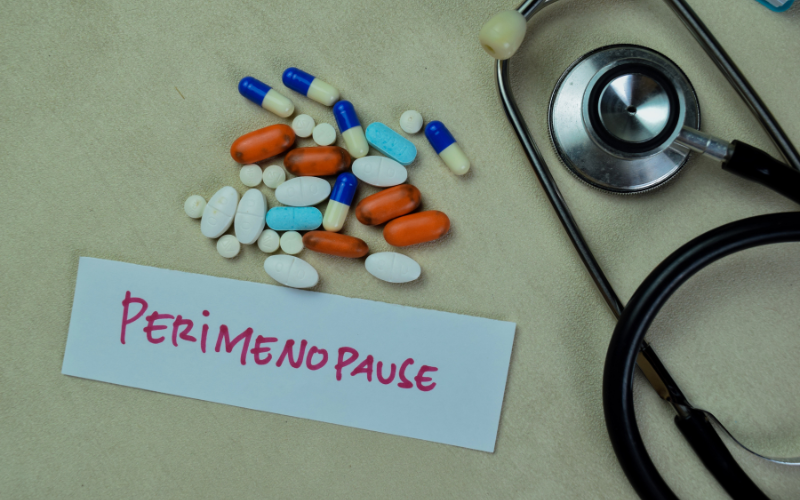Author: Dr. Manisha Ranjan MBBS, MGO, FGO, DGO
Consultant – Obstetrician & Gynaecologist at Motherhood Hospital Noida Sector 48

As we all know when a woman reaches her 50’s, the reproductive hormones naturally tend to decline. This not only terminates the period, but also brings about other physical and mental changes. Many people talk of mood changes being a normal part of the change of life or menopause.
But not only are these hormones related to reproduction, but they also play a role in defining the person’s mood. For many women it may just be the menopause blues but for the rest, it may lead to depression.
Here’s how to tell if you are experiencing menopause blues or if you have clinical depression.
Perimenopause Phase
As you enter perimenopause, you may experience mood swings. It may be hard to tell if these are just temporary or symptoms of a more serious mental health problem. While many women go through menopause without experiencing depression, many women will experience depression either as a recurrence of previous depression or for the first time in their lives. Depression can make coping with menopause very difficult or impossible. It may impact relationships, professional, and personal life.
Make a Menopause Journal
The best way to differentiate a normal menopause from depression is to analyse your mood. It will be ideal for you to start a journal that will help you track your mood, activity level, other menopause symptoms, and menstrual cycle for a period of three to four months. This will be convenient if you decide to talk about your symptoms over with a professional.
What is Clinical Depression?
Clinical depression, also known as major depressive disorder or unipolar depression is a serious condition characterized by intense sadness or despair that lasts more than two weeks, and that interferes with your daily life. Major depression is typically characterized by symptoms such as sadness, feelings of emptiness, loss of enjoyment of hobbies, work, other activities, weight loss, insomnia, fatigue, loss of appetite and constant thought of dying.
Causes of Midlife Depression
There are ample reasons why women in their 40s may experience depression; it may be biological, situational, or psychological. Factors such as hormonal changes, Response to loss Medical conditions and Drug and alcohol use may contribute to depression.
Symptoms of depression while going menopause may be common, but they may vary depending on severity. Here’s how you can cope with menopause depression and the menopause blues.
Menopause and Age
Some studies suggest that the age of menopause and depression have found that women with longer reproductive period are likely to not get depressed, reason being longer exposure to estrogen produced by the body.
How to treat Menopausal Depression?
Symptoms of depression during menopause may be the same but they may vary in terms of severity. Try these methods of coping with menopause depression and the menopause blues.
- It’s okay to feel sad or down for a day or two. Even grief following a major loss is normal for up to a year. But if these symptoms persist then it is mandatory to talk to a psychologist or a counselor about your condition.Or alternatively, you may seek interpersonal or cognitive behavioral therapy as these two therapies have helped a lot of women dealing with depression.
- Natural remedies may be an effective way of managing depression for women who experience symptoms that are not so severe. You can try everything from special teas to herbal supplements to keep your symptoms in check.
- It is not common for women going through menopause to experience insomnia. Hot flashes and other physical changes can all affect your sleep cycle and eventually your mood. Focus on getting better sleep by meditating which may also improve your mood.
- There are several other women out there who are going through menopause and understand what it feels like firsthand. To understand your situation better, read a book on the subject, join a support group, or look up online.
Menopause or depression symptoms are not uncommon in a woman’s life during this phase, but when these symptoms persist, it might be more than just menopause.


 Toll Free Number
Toll Free Number







